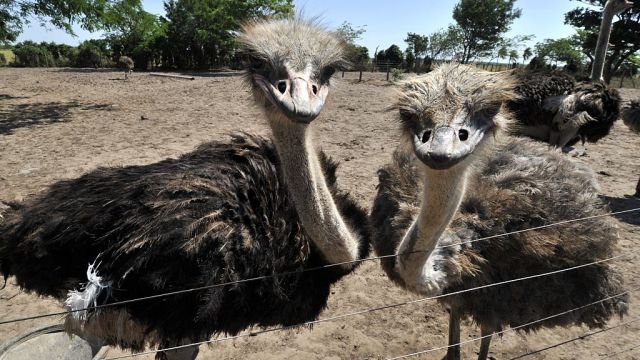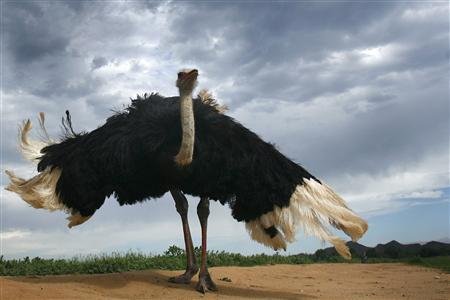Ostrich, the flightless bird native to Africa, inhabited India about 25,000 years ago, a study conducted by the Centre for Cellular and Molecular Biology (CCMB) here has found.
Though it is native to Africa, several geologists and archaeologists have over the time found ostrich egg shell pieces in India, mostly in Rajasthan and Madhya Pradesh.
A DNA study of some partly fossilised ostrich egg shells was conducted recently.

“We have successfully analysed the ostrich egg shells in our ‘ancient DNA’ facility and established that the egg shells (found in India) are genetically similar to the African ostrich,” CCMB’s senior principal scientist Kumarasamy Thangaraj had said recently.
“The carbon dating (of the ostrich egg shells) to determine the age shows that they are at least 25,000 years old,” Thangaraj had said.
The study was conducted jointly by the scientists of CCMB, Indian Institute of Technology, Roorkee and others.
The findings of the research have been published in the March 9, 2017 issue of science journal PLOS ONE.
The origin and evolution of ostrich is widely attributed to the continental drifting of Gondwanaland or Gondwana.

Around 150 million years ago, Gondwana was a super-continent comprising South America, Arabia, Africa, Australia, Antarctica, India and Madagascar of the present times, an official release had said.
An initial break-up of this super-continent (during the Early Cretaceous period – 130 to 100 million years ago) separated Africa and Indo-Madagascar.
This bio-geographical dispersion eventually led to hopping of ostriches in Africa through Eurasia (the combined continental landmass of Europe and Asia), via land route around 20 million years ago.
However, the continental drift theory for the existence of ostriches in India was not proven scientifically, the release had said.
Over the time, several geologists and archaeologists discovered ostrich egg shell pieces, mainly in Rajasthan and Madhya Pradesh.
However, only morphological pattern of the fragile egg shell pieces is not sufficient to prove the existence of ostrich in India.

The researchers thus analysed the mitochondrial DNA to come to the conclusion about the existence of ostriches in India, the release had said.
Phylogenetic (relating to the evolutionary development and diversification of a species or group of organisms, or of a particular feature of an organism) analysis of the DNA sequence revealed a 92 per cent identity of the fossil egg shells to the African ostrich species – Struthio camelus, it had further said.

















